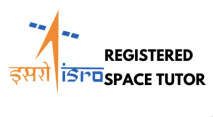Space technology has revolutionized our understanding of the universe and has paved the way for many of the technological advances we enjoy today. From GPS to weather forecasting to satellite communications, space technology has had a profound impact on our lives. As a parent or educator, it’s important to understand the basics of space technology so you can help your children or students appreciate its significance.
Here are a few key concepts to keep in mind when teaching about space technology:
Satellites: Satellites are artificial objects placed in orbit around the Earth or other celestial bodies. They are used for a variety of purposes, such as communication, navigation, Earth observation, and scientific research.
Rocketry: Rockets are vehicles that are designed to launch payloads, such as satellites or spacecraft, into orbit or on interplanetary missions. Rocketry is a complex and highly specialized field that involves knowledge of materials science, aerodynamics, and propulsion systems.
Robotics: Robotics plays a crucial role in space technology, as many space missions are conducted using robotic spacecraft. Robotic systems are used for a variety of purposes, such as exploring other planets, repairing and maintaining satellites, and conducting experiments in space.
Space exploration: Space exploration is the study of the universe beyond Earth’s atmosphere. It involves sending spacecraft and probes to other planets and celestial bodies, as well as conducting scientific research in space. Space exploration has led to many important discoveries and has expanded our understanding of the universe.
Here are some inspiring facts about space technology that might motivate your child or students to learn more:
The first artificial satellite, Sputnik 1, was launched by the Soviet Union in 1957.
The International Space Station, a joint project of several countries, is the largest human-made structure in space.
The Hubble Space Telescope has captured some of the most stunning images of the universe and has helped astronomers make many groundbreaking discoveries.
The Mars rovers, Spirit, Opportunity, and Curiosity, have explored the Martian surface and have helped us learn more about the planet’s geology and history.
By understanding space technology, you can help your child or students appreciate the importance of science and technology in our daily lives.


